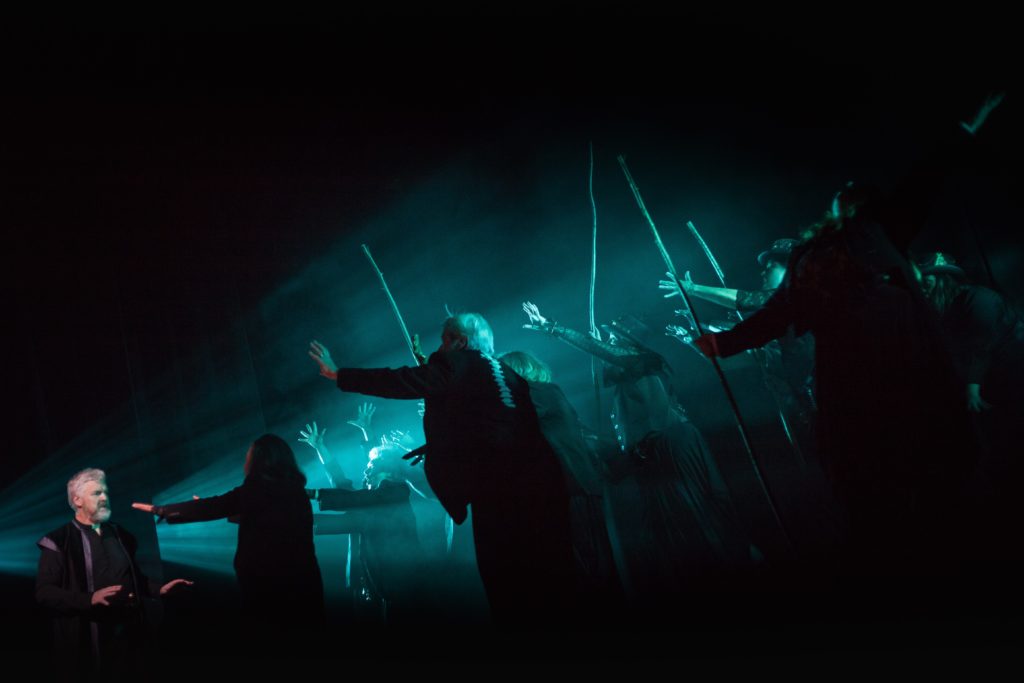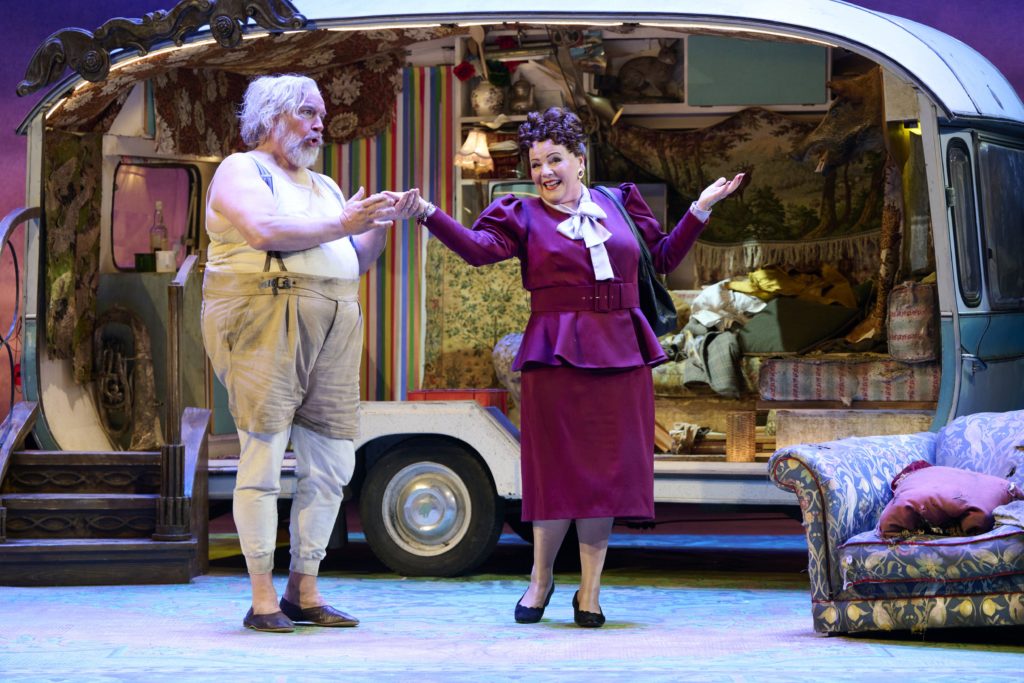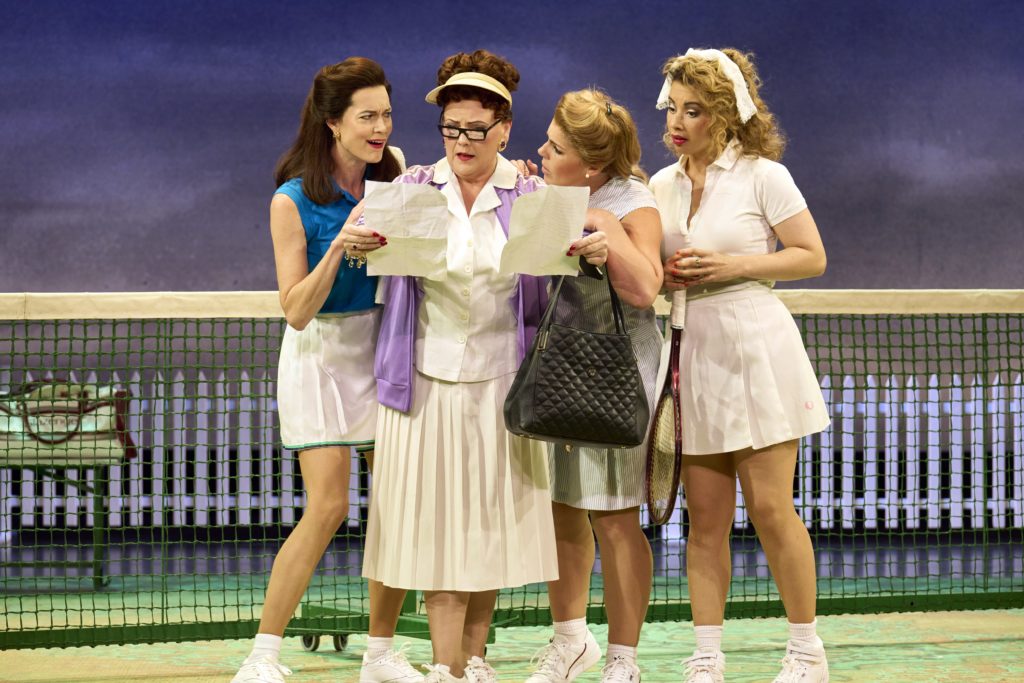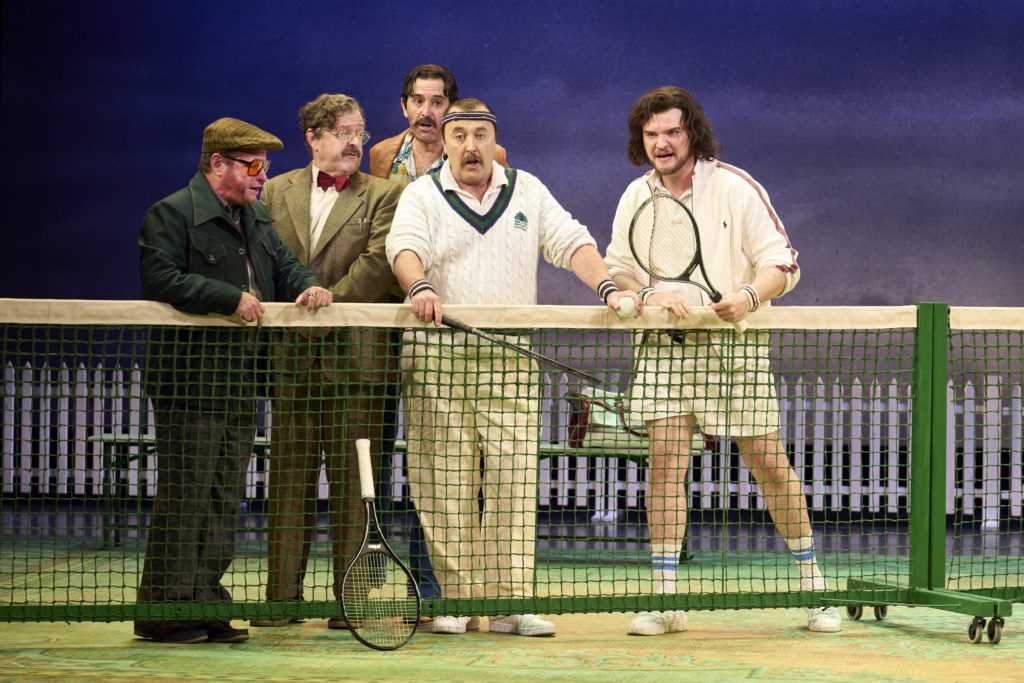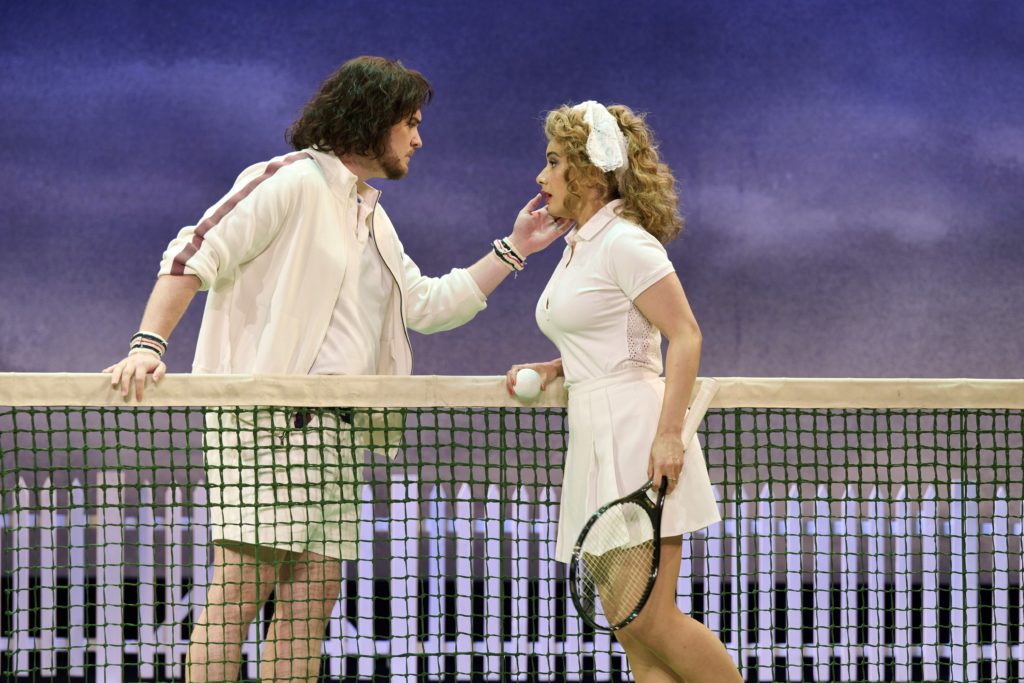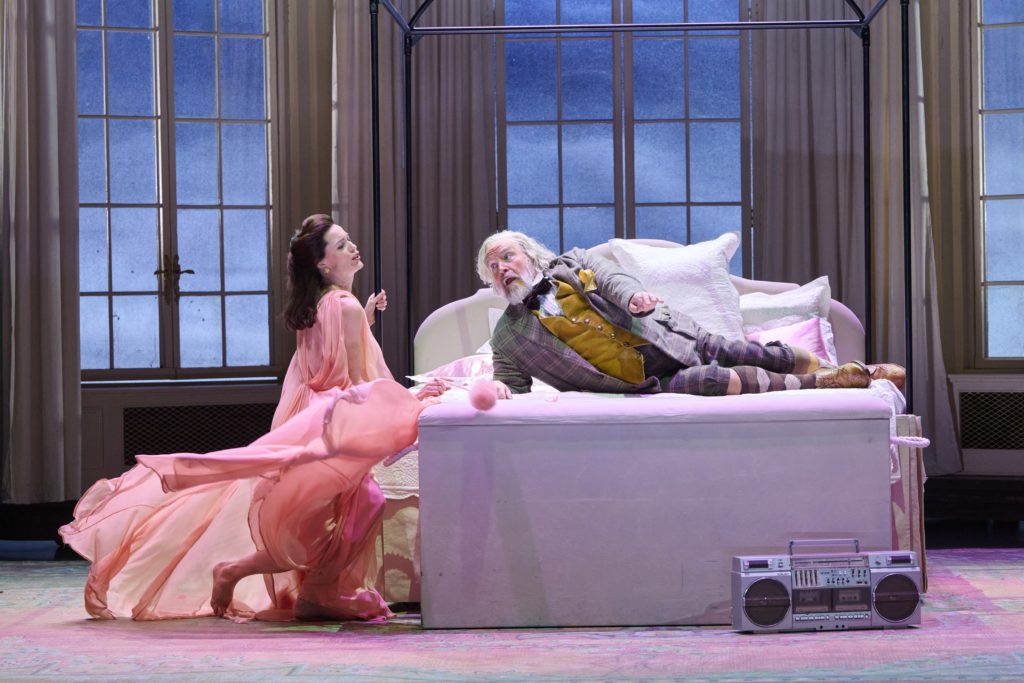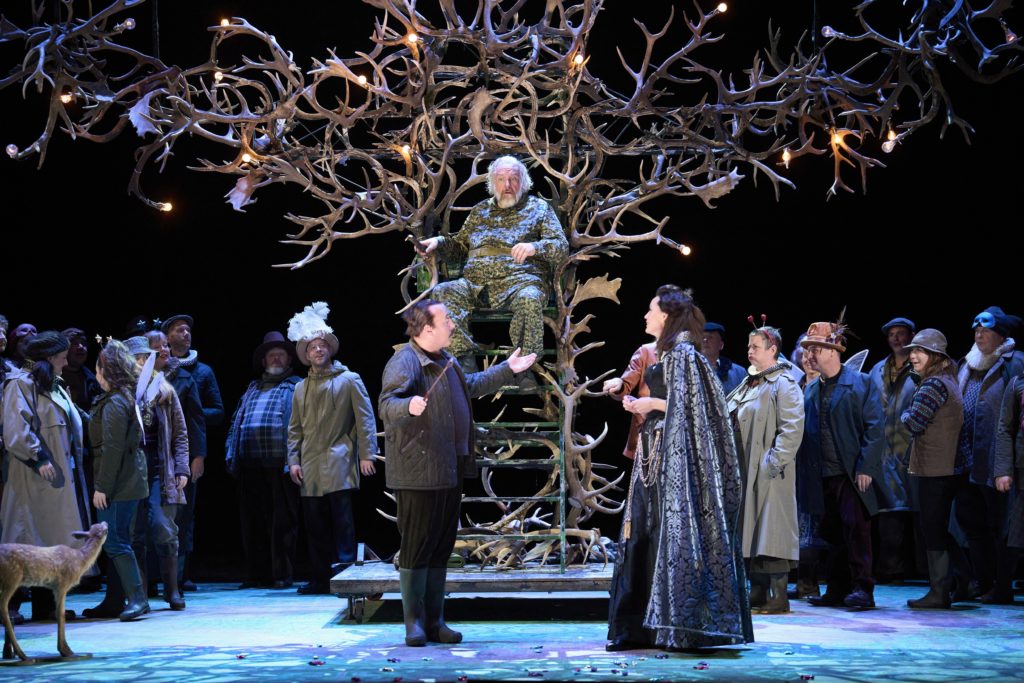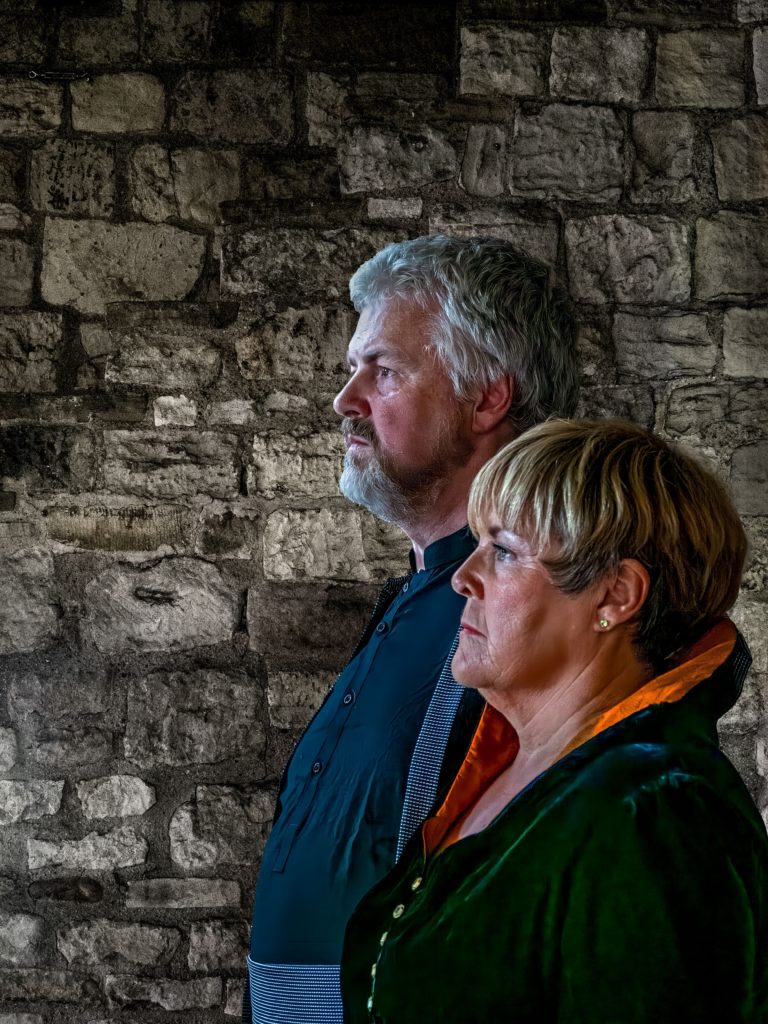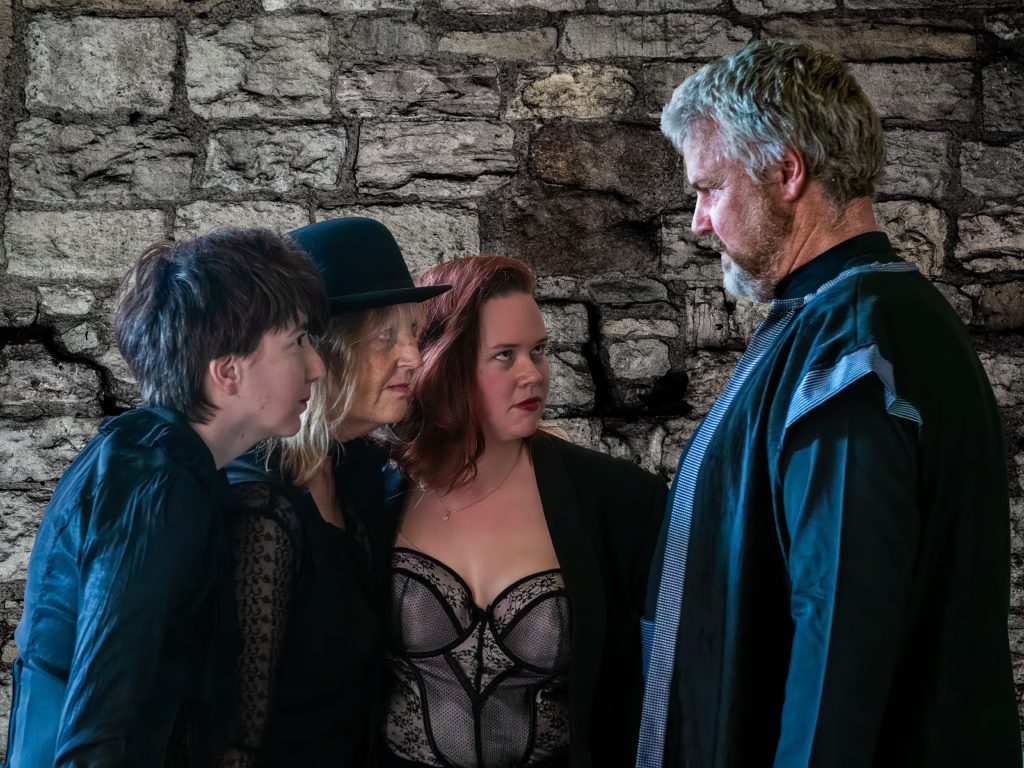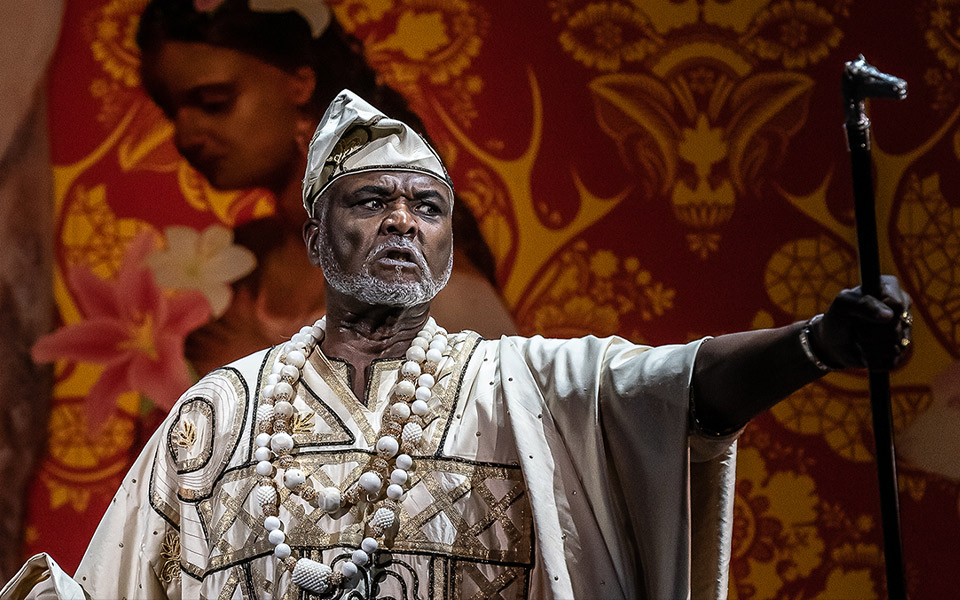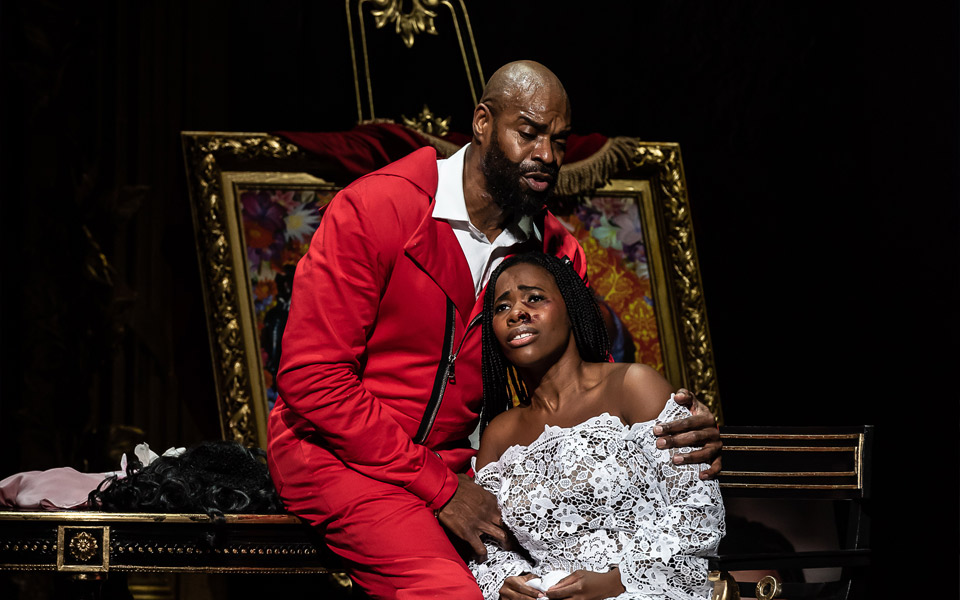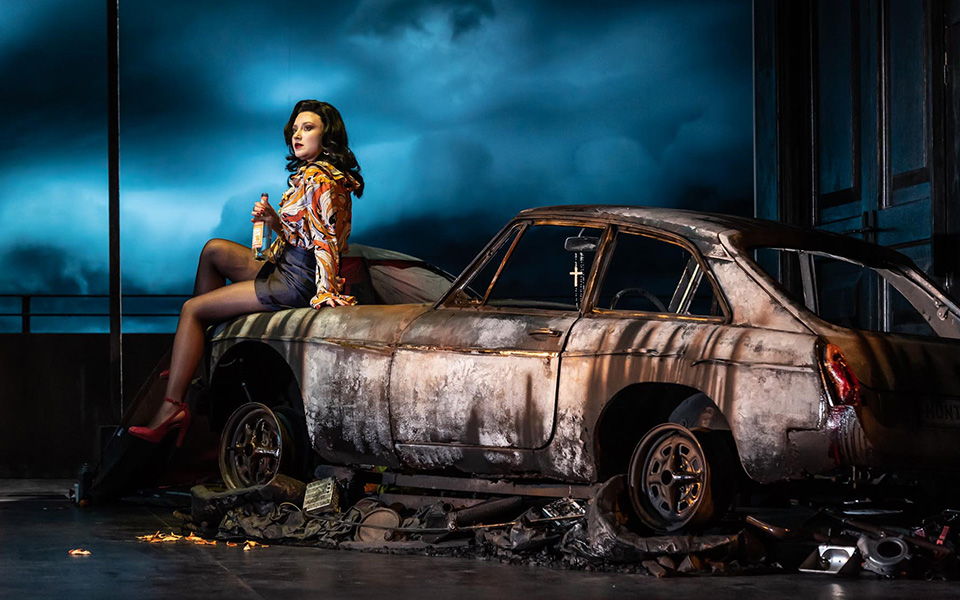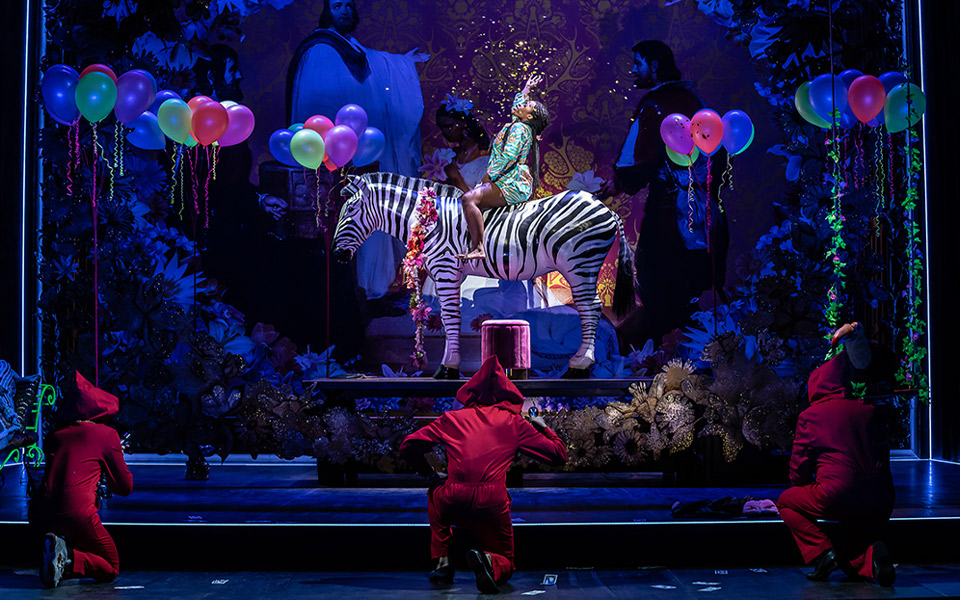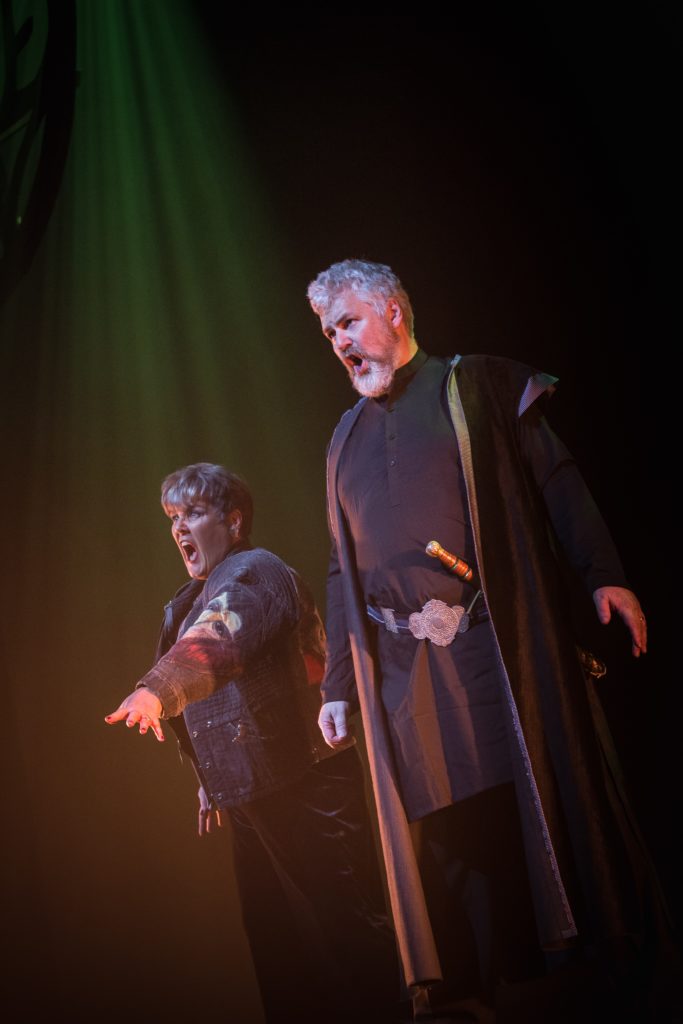
HARD on the heels of Opera North’s Falstaff, up pops York Opera with the first of Verdi’s three Shakespearean operas, Macbeth.
You do not undertake Macbeth without one absolutely key singer: not the title role, but that of his wife, Lady Macbeth. York Opera has that singer, in spades.
Sharon Nicholson-Skeggs has been sorely missed over the past few years but returns here in triumph, injecting her own special brand of inspiration and lifting the evening out of the ordinary. She alone is worth the price of admission, whatever reservations there may be elsewhere in John Soper’s production.
Beside the two Macbeths, there is another ‘character’ – according to Verdi’s own prescription –that is essential to this piece: the witches. He wanted them to be “coarse and gossipy” on the one hand and “sublime and prophetic” on the other.
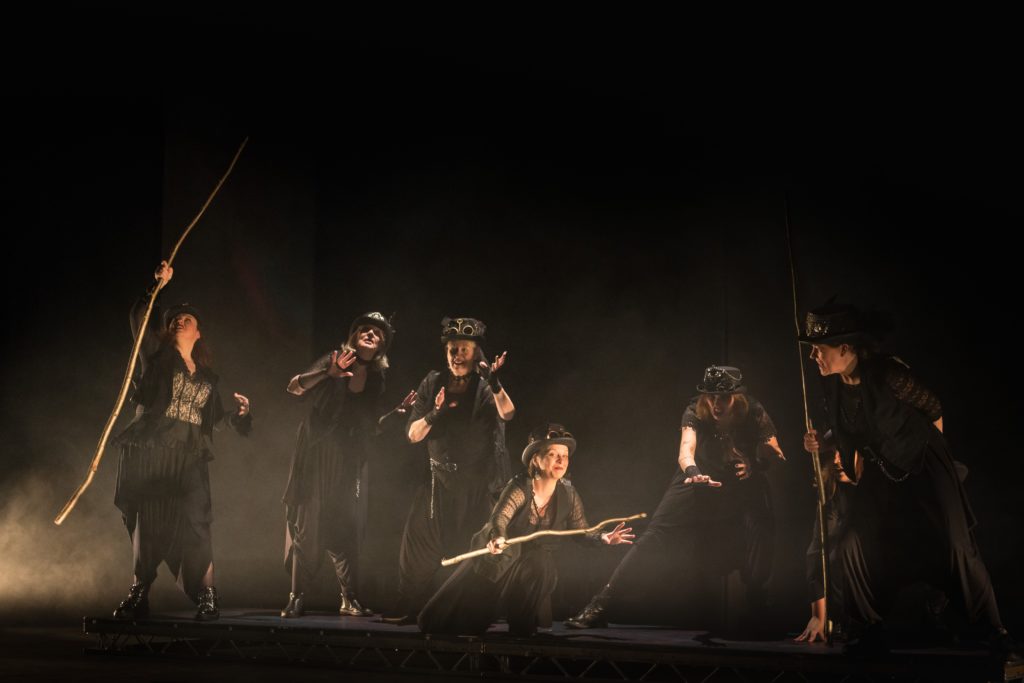
The ladies of the chorus amply satisfy both requirements, indeed if they have a fault, it is their penchant for gossiping ‘off the ball’ when their attention should be elsewhere. But they blend well and their choruses are a vital pivot in the action.
Soper’s permanent set involves three huge pillars separated by wide stairways, with a low moveable platform in front. The colourings are dark, relieved only by the occasional hanging. Eric Lund’s gloomy lighting completes the bleak picture of Macbeth’s castle.
But a trick is missed with the three apparitions, who need spotlighting, with no illumination elsewhere; dry ice alone, and there is plenty in this show, does not make them ghostly enough.
The challenge facing every conductor of opera is to find a balance between accompaniment and direction, either going with the flow or commanding it. Derek Chivers opts almost exclusively for the more passive approach and as a result his tempos tend towards the sluggish, so that Verdi’s intensity slackens off alarmingly.
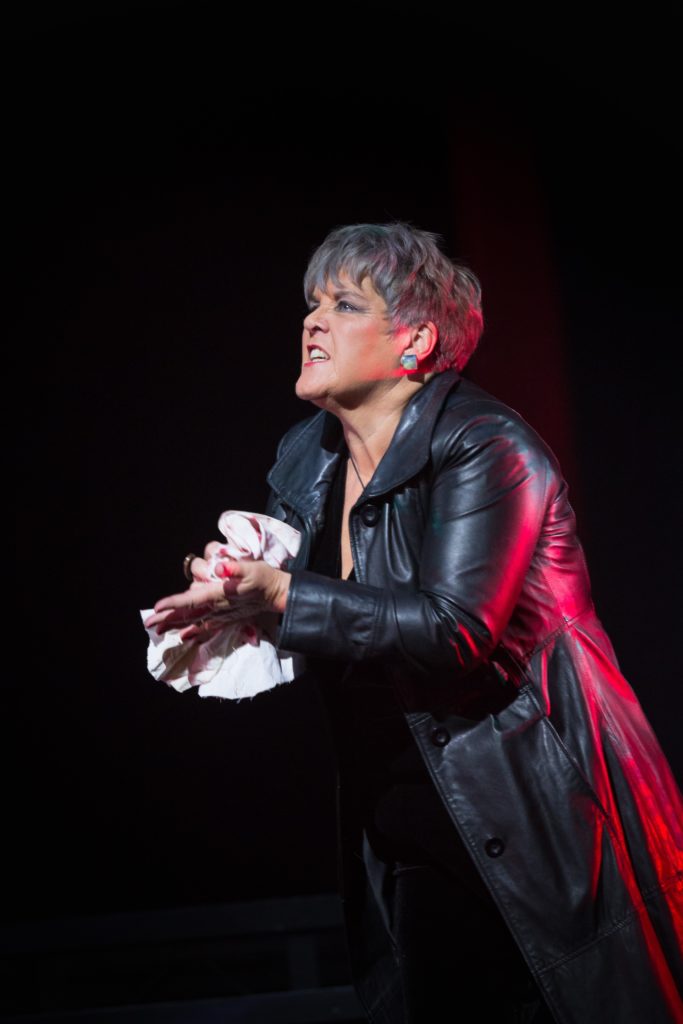
There were several occasions on this opening night when singers, either chorus or soloists, got slightly ahead of the beat, but were held back, usually to their disadvantage. Similarly, the orchestra too often lacked its usual spark though it was generally tidy.
In truth, Nicholson-Skeggs got off to an uneven start, with some wayward intonation in Act 1. Come her Act 2 monologue, however, she was firing on all cylinders. Thereafter she never looked back.
Splendidly attired in black and gold at the banquet (costumes by Maggie Soper), she delivered a resolute brindisi, alongside brilliant woodwinds, and the evening took on a new momentum. Her swoops skyward were spine-tingling, her resonance throughout her range thrilling. She is an outstanding talent.
Ian Thomson-Smith’s Macbeth was the proverbial curate’s egg, good in parts. He seemed to have an aversion to facing his audience, except in his final aria, as if he was not quite inhabiting the role. His character’s vacillations have somehow to look more convincing than this. But there was plenty of evidence that he is still a useful baritone.
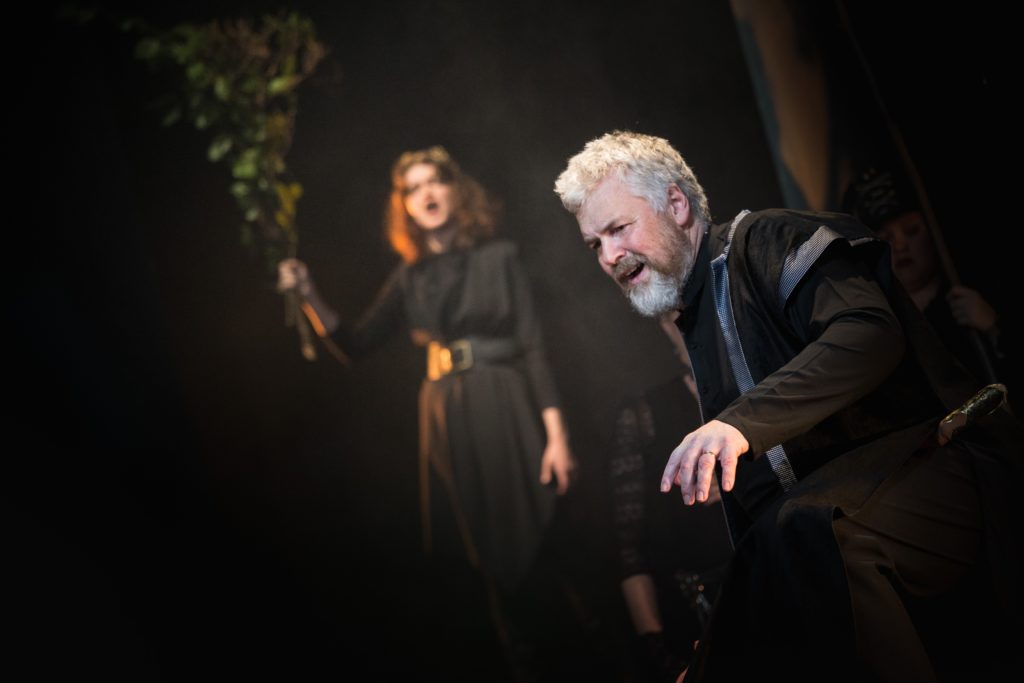
Lesser roles were well taken. Adrian Cook’s Banquo (also an eerie ghost), Hamish Brown’s Macduff and Leon Waksberg’s Malcolm all made distinctive contributions. So too did Polina Bielova’s anxious Lady-in-waiting, a promising talent.
The choreography was not credited, but reached its peak in Act 3, where the witches were at their most disciplined. Elsewhere there was less cohesion. In general, less is more with choreography, especially where arms are being waved.
This first night showed the seeds of something much better, but was not quite the finished article.
Further performances: tomorrow (20/10/2023), 7pm, and Saturday, 4pm. Box office: 01904 623568 or yorktheatreroyal.co.uk.
Review by Martin Dreyer, October 18
